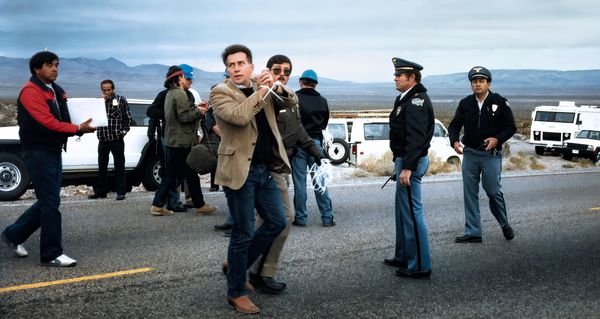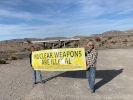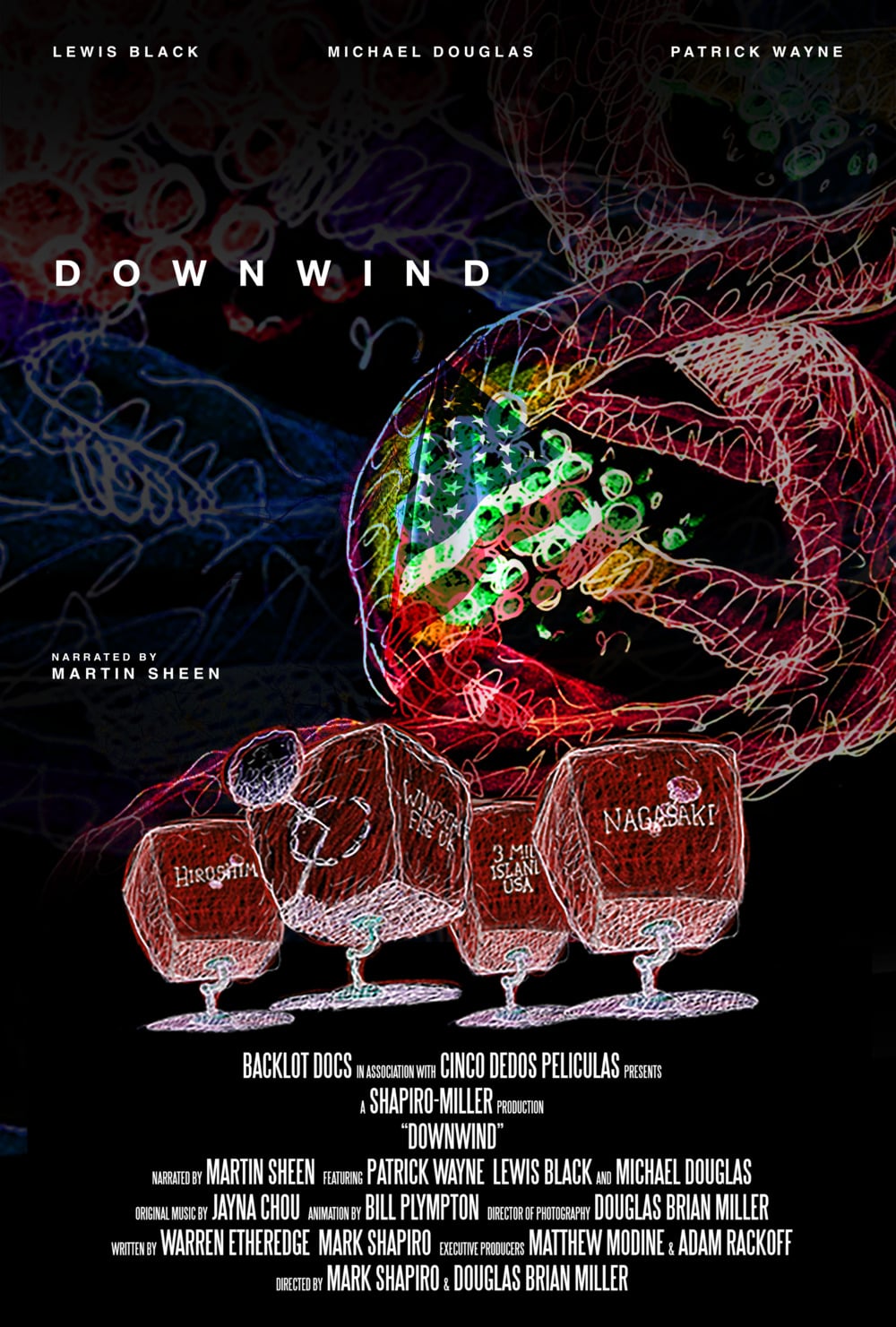Eye For Film >> Movies >> Downwind (2023) Film Review
Downwind
Reviewed by: Jennie Kermode

“Put on your goggles,” says the voice. “Observers without goggles must face away from the blast.” Nuclear safety precautions were not always what we might hope for – but there’s worse. Much worse.
From the moment that Hahn, Strassmann, Meitner and Frisch published their respective papers in 1938, everyone involved with military science knew that an atomic bomb was a possibility, and had a pretty good idea what one would do – but military commanders prefer their investments to be made on a more precise basis. The strikes on Hiroshima and Nagasaki yielded a lot of useful data but it only got them so far. Testing on South Sea islands proved complicated and expensive. Where could they drop bombs without starting a war or risking too much political fallout? How about Nevada?

Between 1951 and 1992, they dropped 928.
Douglas Brian Miller and Mark Shapiro’s documentary is the US equivalent of Anthony Butt’s devastating After The Apocalypse, and it highlights several things with the US and Soviet nuclear weapons programmes had in common. Like its Cold War enemy, the US chose to drop its bombs on land belonging to an ethnic minority – in this case the Western Shoshone. It also pretended nothing was happening even as it carried out studies on the affected population, designated ‘downwinders’. And just as in that case, the genetic legacy of the bombing remains today. But there’s a twist in the US tale. Whereas the Kazakh victims of Soviet experimentation held no interest for the rest of the world, those impacted in the US did. That Shoshone land was also used for shooting westerns, with some of Hollywood’s biggest stars.
There’s such a huge story here that it’s astonishing that it hasn’t been put on film before. There’s a suggestion that that’s not for want of trying. John Wayne died of stomach cancer in 1979. His son Patrick talks here about visiting the Nevada set with his father, seeing the horses kicking up the red dust. Half of the cast of The Conquerors died of cancer of one sort or another – almost 2.5 times the national average at the time. Ian Zabarte, head man of the Western Shoshone people, remembers children playing in the fallout from the bombs and the way that radiation sickness affected his family members. His grandfather developed an immune disorder and his skin fell off. Claudia Petersen, another downwinder, talks about losing seven members of her immediate family to different forms of cancer.
Wider context is provided by Michael Douglas, whose father, Kirk Douglas, was one of the lucky ones – perhaps twice over. Kirk was born in Belarus and he remembers becoming interested in his European roots during the late 1980s, trying to find the village he was from, and realising that it was no longer there – it had been downwind of the Chernobyl disaster. Ever since, he has campaigned against nuclear weapons. Comedian Lewis Black shares a similar perspective, pointing up the absurdity of making something which could kill all of us – but it’s the collateral damage which the film is really interested in.
Did the men who arranged to drop the Nevada bombs know what they were doing? Archive promotional videos in which they discuss testing programmes involving dogs, pigs and rats destroy claims of ignorance. We also get to see a clip of the now infamous ‘duck and cover’ film created to reassure the American people. Black recalls being told as a child that in the event of a nuclear attack he should sit underneath his desk and place his hands over his head. Even then, he could see through it.
The responsibility is international. 24 of the US tests were conducted jointly with the UK. Weirdly, the US took the trouble to have each suggested test name checked by a sensitivity panel to make sure it wouldn’t offend anyone. The fact that several went ahead bearing the names of Native tribes is telling.
It’s easy to be outraged by all this. What’s impressive about Downwind, which screened at Slamdance 2023, is the way that it supports its case with evidence, largely taken from the US military’s own files, and the way that it manages the emotional side of things so that there’s room to take all of this in. It never feels laboured and will, in fact, leave you feeling that for all its informational density it has still revealed only the tip of the iceberg. If it doesn’t feel very relevant to you because it’s not your country, bear in mind that cancer patterns worldwide show correlations to nuclear tests and accidents. As one participant puts it, “We’re all downwinders now.”
Reviewed on: 03 Feb 2023















